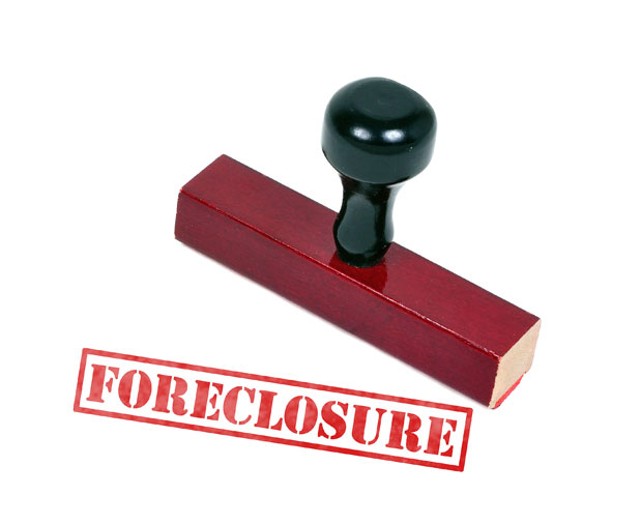Published March 13, 2013 at 10:11 a.m.
Even as the national foreclosure crisis appears to be easing, Vermont is experiencing a spike in legal filings by mortgage lenders seeking to take title to homes whose owners have fallen behind in their payments.
Vermont’s foreclosure rate has ranked as one of the lowest in the country in the years since the 2008 financial meltdown put millions of Americans in jeopardy of losing their homes. Today, the state is an outlier once again — for the opposite reason. Nationally, foreclosure filings fell by 28 percent last year; in Vermont, they increased 33 percent.
The number of foreclosure cases had fallen in Vermont in two consecutive years since peaking at 1924 in 2009. There were 1370 filings in 2011, but the total suddenly soared to 1824 in 2012.
What accounts for the sharp increase?
Vermonters familiar with the foreclosure process suggest it’s a product of a delay in filings by mortgage lenders who held off as lawsuits against some of their practices moved through the court system.
“The decline we saw was basically a false decline,” says Eric Avildsen, director of Vermont Legal Aid. “National banks engaged in settlement negotiations relating to their bad practices weren’t doing large numbers of new filings.”
Thomas Candon, the state’s deputy commissioner of banking, offers a similar explanation. “Filings that could have been done earlier are happening now, but I think it will start to wane as we go through this year,” he says.
Vermont’s current counter-cyclical trend could reflect a surge in new filings by the Big Five national mortgage lenders: Bank of America, Citigroup, GMAC/Ally, JPMorgan Chase and Wells Fargo. They may have moved earlier and more concertedly in states with much larger numbers of loan defaulters. It might thus be that the Big Five are playing catch-up in Vermont.
But officials aren’t sure. The Vermont Department of Financial Regulation doesn’t compile statistics on which entities are initiating foreclosures, Candon says.
He does observe, however, that Vermont lending institutions are much less likely to launch foreclosure actions than are the Big Five. “Vermont banks and credit unions are hand-holding, trying to help people who fall behind,” he says.
Avildsen also cites “a tremendous difference between Vermont bank mortgages and national bank mortgages.” In comparison to the loosey-goosey terms offered in the previous decade by subprime lenders, Vermont-based creditors “often required more of borrowers and had personal relationships with borrowers,” Avildsen notes. “At Legal Aid, we rarely get involved with cases involving Vermont banks.”
Some foreclosure cases in Vermont are “just heart-wrenching,” Candon says. Medical bills, job losses and marital issues are the leading causes of loan delinquencies leading to foreclosure proceedings, he says.
Take the case of one client of Jessica Radbord’s. The Vermont Legal Aid attorney tells of a Chittenden County homeowner who developed cancer and had to undergo surgery and chemotherapy, resulting in whopping bills and the loss of her job. The woman was threatened with foreclosure until Legal Aid helped her enter a federally sponsored mediation process that can reduce mortgage interest rates and stretch out payment periods. The woman was able to keep her home as a result, Radbord reports.
An unknown number of Vermonters have not been as fortunate. Candon says the state does not know how many of the 10,772 foreclosure filings since 2005 actually forced Vermonters into
More By This Author
Speaking of...
-

Vermont to Open $20 Million Business Flood Relief Fund
Jul 27, 2023 -

Video: Following Seven Days' Paper Trail to Québec
Jun 21, 2023 -

Rochester Grocery Store to Close, Leaving Residents in the Lurch
Apr 24, 2023 -

Video: Saying Goodbye to Burlington’s Penny Cluse Café
Nov 17, 2022 -

Essay: Natalie Miller Riffs on How Her Nightclub Survived the Pandemic
Sep 14, 2022 - More »
Comments
Comments are closed.
From 2014-2020, Seven Days allowed readers to comment on all stories posted on our website. While we've appreciated the suggestions and insights, right now Seven Days is prioritizing our core mission — producing high-quality, responsible local journalism — over moderating online debates between readers.
To criticize, correct or praise our reporting, please send us a letter to the editor or send us a tip. We’ll check it out and report the results.
Online comments may return when we have better tech tools for managing them. Thanks for reading.















































